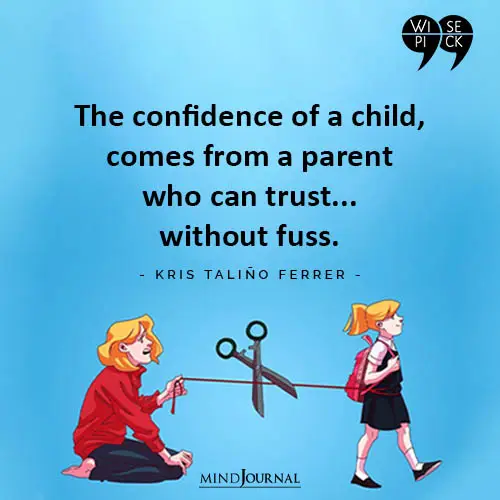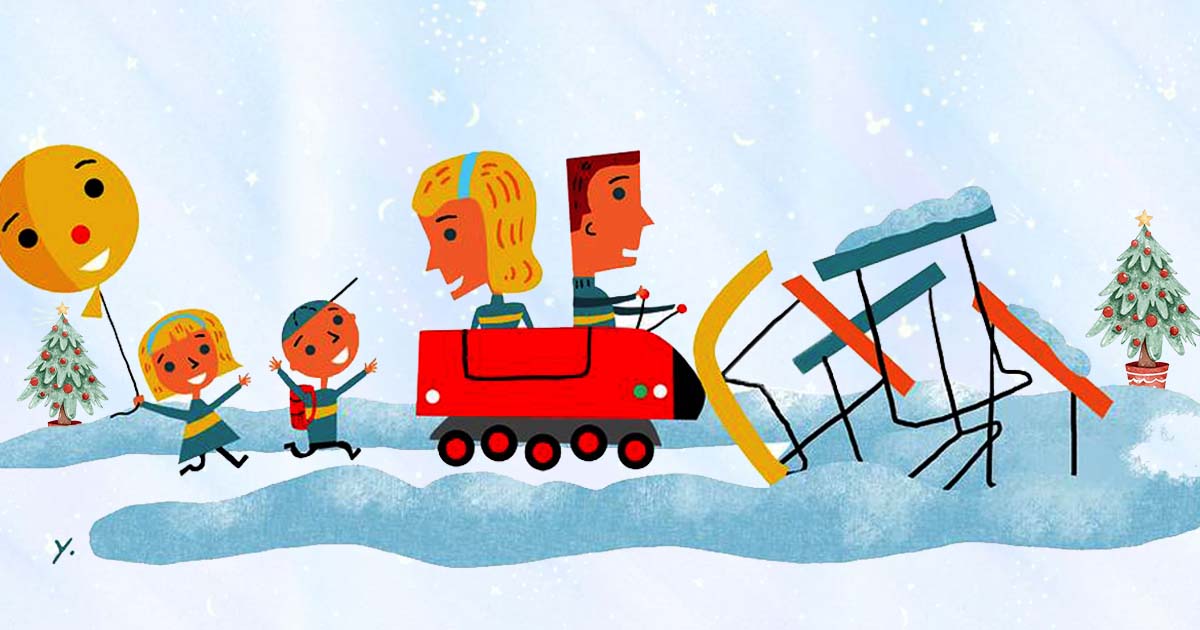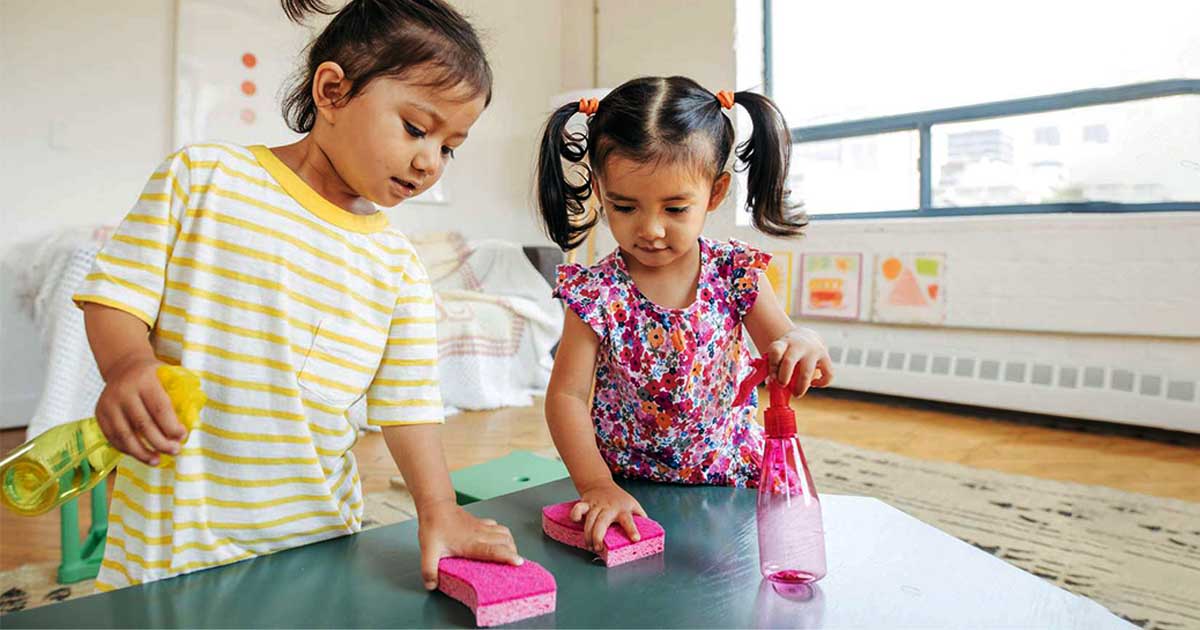Ever found yourself meticulously clearing a path through life for your child, fervently smoothing every rough patch and carefully obliterating obstacles from their way? If so, you might be showing signs of snowplow parenting.
Join us as we explore the 5 tell-tale signs of snowplow parenting. We are also going to provide you with examples related to snowplow parenting and how to avoid them. But before that let us first understand what is snowplow parenting.
What is Snowplow Parenting?
Snowplow parenting, also known as over-parenting or helicopter parenting, is a parenting style characterized by an excessive level of involvement and intervention in a child’s life.

As parents, we all want what’s best for our children. It’s only natural to want to clear any hurdles from their path to ensure their success and minimize their frustrations and failures. This well-intentioned approach is often referred to as “snowplow parenting.”
This parenting style comes from a place of love and concern, but it can have adverse consequences. While it’s challenging to watch your child struggle or face disappointment, it’s crucial to understand that failure is a fundamental part of life.
Read More: What Are Parenting Styles? Explore Different Types Of Parenting Styles And It’s Impact On Children
When children aren’t allowed to experience disappointment and failure, they miss out on valuable opportunities to develop essential life skills. These skills include resilience, problem-solving, and the ability to pick themselves up after a fall and find alternative routes to success.
Signs of Snowplow Parenting
In our pursuit of providing the best for our children, we sometimes cross boundaries. The following are some of the most common signs that snowplow parents show in their parenting style:
1. Helping Too Much
Snowplow parenting happens when you do things for your children, even when they can do those things on their own.
You might do this because you want to get things done quickly and make sure they’re done right. But this can stop your kids from learning how to do things by themselves.

For example, you might always help with their homework, even when they can do it alone. Or you might dress them, even when they can dress themselves. Sometimes, you make decisions for them that they should make themselves, given their age.
It’s important to notice when you’re doing this and try to find a better balance. Let your kids learn and grow on their own, so they become more self-reliant.
2. Being Overprotective
In snowplow parenting, one distinctive trait is being overly protective. This means that you, as a parent, may have a tendency to worry excessively about potential dangers and risks that your child could encounter.
This concern often leads to a situation where you might prevent your children from participating in activities that are entirely suitable for their age and development.

As a result, children may miss out on opportunities to learn, grow, and develop essential life skills. It’s essential to find a balance between ensuring their safety and allowing them the freedom to explore, make mistakes, and become more self-reliant.
Read More: 5 Kinds Of Fear-Based Parenting Every Parent Should Steer Clear Of
This way, they can learn to navigate challenges, build resilience, and grow into independent individuals.
3. Constant Involvement
Snowplow parenting is characterized by your significant involvement in your child’s life. This means you tend to become deeply engaged in your child’s daily activities and decision-making.

Practically, this involvement could translate into you making choices on behalf of your child, such as deciding which extracurricular activities they should participate in, what subjects they should study, or even how they should use their free time.
While your intentions are often rooted in care and guidance, this level of involvement can unintentionally prevent your child from making their own decisions and learning from their own experiences.
4. Obstacle Removal
You may often find yourself in the habit of removing obstacles and solving problems for your children rather than letting them deal with challenges.
In practice, this could mean that you tend to step in and solve every problem or address every difficulty your child faces. Whether it’s handling school conflicts or everyday challenges, you might be quick to offer solutions and clear the path for your child.

However, this can prevent your child from learning how to navigate these obstacles, develop essential problem-solving skills, and become more self-reliant.
5. Avoiding Consequences
In snowplow parenting, you might tend to protect your children from the natural outcomes of their actions. Instead of encouraging them to take responsibility, you may find yourself making excuses or justifications for their behavior.
This can manifest in practical situations where you shield your children from facing the consequences of their actions. For instance, you might intervene to prevent them from experiencing the results of their forgetfulness, or you may offer explanations for their behavior when they should be taking responsibility.
Although these actions often arise from a place of care, they can hinder your child’s understanding of accountability and the importance of facing the effects of their choices.
Reasons for Snowplow Parenting
The following are some of the reasons why parents feel they need to apply the snowplow approach to parenting:
1. Over-protectiveness
Some parents just can’t bear to see their children struggle or fail. They want to remove any obstacles in their path.
2. Perceived Threats
Today’s world, with its constant news and social media updates, can make parents overly concerned about their children’s safety. So they over-parent to keep them safe.
3. Personal Experiences
Sometimes, parents have faced difficulties in their own lives, and they want to shield their kids from similar challenges.
4. Anxiety Issues
Parents dealing with their own anxieties often resort to over-parenting, thinking it helps alleviate their fears.
5. Cultural Influences
Societal norms and pressures can push parents to prioritize academic or professional success, leading to this kind of parenting style.
6. Social Competitiveness
In a competitive world, some parents push their children hard to ensure they stay ahead of the pack.
Read More: 6 Signs Of Controlling Parenting And The Long Term Effects It Has On The Child
You as a parent must understand that children need the space to face life’s challenges and setbacks, which helps them build resilience. Striking the right balance between support and independence is key for your child’s holistic growth.
Snowplow Parenting Examples
Examples of snowplow parenting can shed light on the ways in which this parenting style can manifest:
1. Over-protection
Some parents engaging in snowplow parenting may not allow their children to engage in age-appropriate activities, like taking the bus or walking home from school when they are old enough. In these snowplow parenting examples, parents are often driven by concerns for their child’s safety, but it can inadvertently hinder their development and self-reliance.
2. Homework Assistance

These snowplow parenting examples occur when parents complete their child’s homework for them instead of allowing them to tackle it independently or guiding them in how to do it. This approach can impede a child’s opportunity to learn and develop problem-solving skills.
3. Avoiding Responsibilities
In these snowplow parenting examples, snowplow parents often shield their children from responsibilities, such as chores, logistics management, or the acquisition of essential life skills. By not letting their children take on these responsibilities, it can limit their learning experiences.
4. Conflict Resolution
These Snowplow parenting examples become evident when parents intervene in their child’s disagreements with authority figures, such as teachers or coaches, taking the child’s side regardless of the circumstances. This can hinder the child’s ability to learn conflict resolution and navigate disputes independently.
5. Excessive Academic Pressure
In such Snowplow parenting examples, parents can create an environment of intense involvement, particularly in a child’s academic journey.
Parents may go to great lengths to secure college admissions for their children or exert pressure on teachers to award higher grades, emphasizing achievement as the primary goal.
Read More: 10 Tips On Addressing Academic Stress In Children
Let us now look at how you can prevent snowplow parenting tendencies!
Tips to Overcome Snowplow Parenting
The following are some tips to help you overcome snowplow parenting tendencies:
1. Encourage Independence
Allow your child to take on age-appropriate responsibilities and make decisions, fostering their self-reliance and problem-solving skills.
2. Embrace Managed Risks
Permit your child to face controlled risks, facilitating their learning and growth while ensuring their safety and well-being.
3. Normalize Failure
Understand that failure is a part of life and a valuable learning opportunity. Let your child experience disappointment and learn from their mistakes to build resilience.
4. Promote Open Communication
Foster a relationship of open communication with your child. Listen to their concerns and perspectives, fostering a supportive and understanding environment.
5. Set a Positive Example
Demonstrate a balanced approach between providing support and allowing independence, serving as a positive role model for your child to follow.

By implementing these strategies, you can foster a healthy balance between support and independence, empowering your child to develop into a resilient and self-reliant individual.
Read More: How To Raise Happy, Successful Children
A Word From Mind Family
In the pursuit of giving our children the best possible start in life, it’s easy to find ourselves unwittingly adopting what is snowplow parenting approach. While our intentions are rooted in love and concern for our children, it’s essential to understand that this parenting style can have unintended consequences.
As parents, we want to nurture, protect, and guide our children. But to help them truly thrive, they need more than just smooth sailing; they need opportunities to learn, grow, and face life’s challenges head-on.
Encourage your children to take on age-appropriate responsibilities, make decisions, and solve problems on their own. This helps build their self-reliance and problem-solving skills.
While it’s natural to worry about your child’s safety, providing them with opportunities to face controlled risks, like playing at the park or learning to manage time and money, can foster valuable life skills.
Remember, finding the right balance between offering support and allowing independence is key to fostering your child’s holistic growth!
Frequently Asked Questions (FAQs)
1. What is snowplow parenting?
Snowplow parenting involves excessive involvement in a child’s life, where parents clear obstacles to ensure success. It can hinder a child’s development of independence and life skills.
2. Is snowplow parenting good?
While well-intentioned, it can limit a child’s growth. Balancing support and independence is key.
3. What are the reasons for snowplow parenting?
Overprotectiveness, perceived threats, personal experiences, anxiety issues, cultural influences, and social competitiveness contribute to this style.
4. What are the signs of snowplow parents?
Signs include excessive help, overprotectiveness, constant involvement, obstacle removal, and avoiding consequences.
5. What are some examples of snowplow parenting?
Examples include not allowing age-appropriate activities, completing a child’s homework, shielding from responsibilities, resolving conflicts, and avoiding consequences through excuses.











